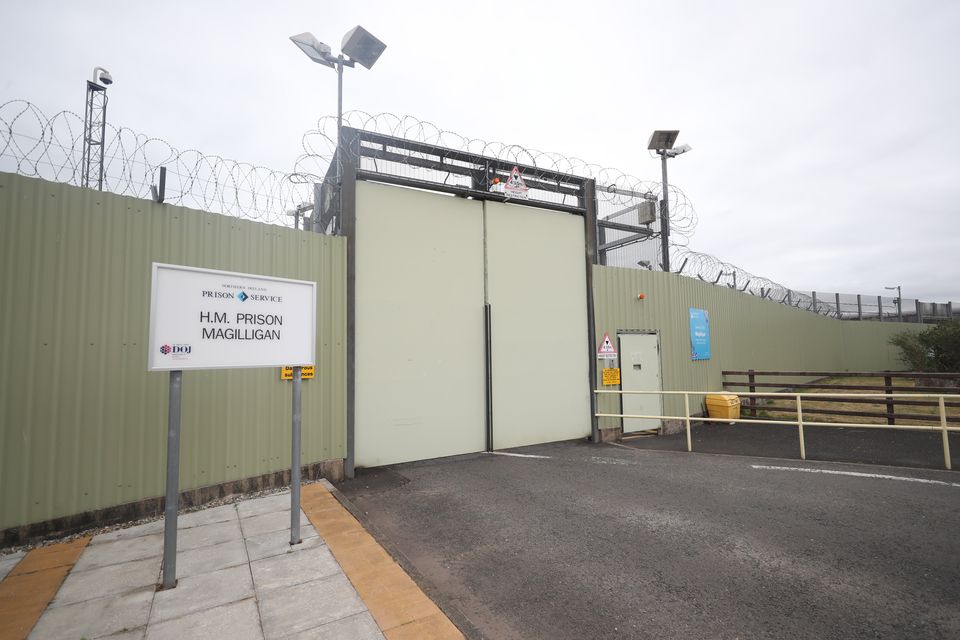A hospital referral for a convicted murderer who took his own life in prison should have been followed up with greater urgency, a report has said.
Jason Weir (33) was found dead in his cell at HMP Magilligan on February 9, 2021.
He was nine years into a life sentence following his conviction for the murder of Philip Strickland in 2012 close to Comber, Co Down, but was due to be released the year after his death.
Jailed alongside him for murder were his millionaire farmer father Jimmy Seales and older brother Ian Weir.
Seales was sentenced to life with a minimum 14-year tariff while Ian Weir, who gave evidence against his dad, was jailed for four years.
Ombudsman Darrin Jones’ report noted Jason Weir’s committal assessment revealed a history of self-harm and depression, including attempting suicide, as well as a history of alcohol misuse and dependence on diazepam.
Initially held for three years in protective custody at Maghaberry, Weir was transferred to Magilligan in May 2017, where he began a programme for anxiety management.
In April 2019, Weir attended a GP for ankle pain and requested a referral to the mental health team for anxiety, but no evidence of low mood or psychotic features was noted by the doctor.
He had been seen by a nurse on July 18 after a prison officer reported he had “all his belongings packed thinking he was going home”.
After consultation with a psychiatrist and a doctor, the prisoner was moved to an observation cell under a “keep safe” document to ensure his safety for a 24-hour period.
Over the next few months, Jason Weir’s mood was reviewed by medical professionals and continued to present with what the report said was “bizarre behaviour”.
He was prescribed antipsychotic drugs, an urgent referral was made to the Shannon Clinic in August 2019 and he was taken to hospital shortly afterwards. Jason Weir was subsequently removed from the Shannon Clinic waiting list in December 2019 after his mental health improved.
After reporting back pain, he was referred to a hospital neurologist on December 5, 2019.
Jason Weir’s mental health remained stable through much of the following year, until an urgent referral to the mental health team shortly after the release of his brother from prison in October 2020.
A subsequent assessment revealed no evidence of drug use and no physical health symptoms. A request was then made to expedite his neurology referral from the previous year.
On December 2, 2020, almost a year after the initial referral, a letter received from a consultant neurologist acknowledged the request to expedite and stated it was to be graded as urgent.
A full psychiatric assessment of Jason Weir had been directed to be submitted for a hearing of the Parole Commissioner in January 2021. That hearing was adjourned and rescheduled for March 2021.
The report said the delay in completing the assessment was “regrettable”.
Read more
HMP Magilligan
The day before his death, Jason Weir was seen on CCTV walking alone from his cell to the prison servery and using the toaster to light a cigarette at around 11.35pm.
At 7.22am the following morning, a prison officer discovered Weir suspended by a ligature and raised the alarm. He was pronounced dead at 8.15am.
The report concluded that Weir’s neurology referral had not been progressed quickly enough.
“The Clinical Reviewer’s opinion was the exploration of possible organic causes for Mr Weir’s illness was not equivalent to care in the community, as Mr Weir was referred for a neurology consultation in December 2019, which he had not received at the time of his death,” said Mr Jones.
He also noted that the Northern Trust had advised that they did not accept the report’s assessment on the exploration of organic causes for Weir’s illness.
“[They] believe the care Mr Weir received was at least equivalent to that which he would have received in the community,” said the report.
“I remain of the view, that as a vulnerable person in detention with the health issues he had, it was not unreasonable to expect that his referral to a neurology consultant was followed up sooner notwithstanding the well-known pressures on waiting lists for access to secondary care.”
In complex cases involving physical and mental health issues with potential organic causes for psychosis, the report recommended a consultant psychiatrist be involved and an urgent referral made, with prompt follow-up.
It added there should be clarity between psychiatry and primary healthcare teams about patient risk assessments, and recommended the Department of Justice should work with the NIPS and Healthcare in Prison to ensure assessments were expedited as soon as possible.
